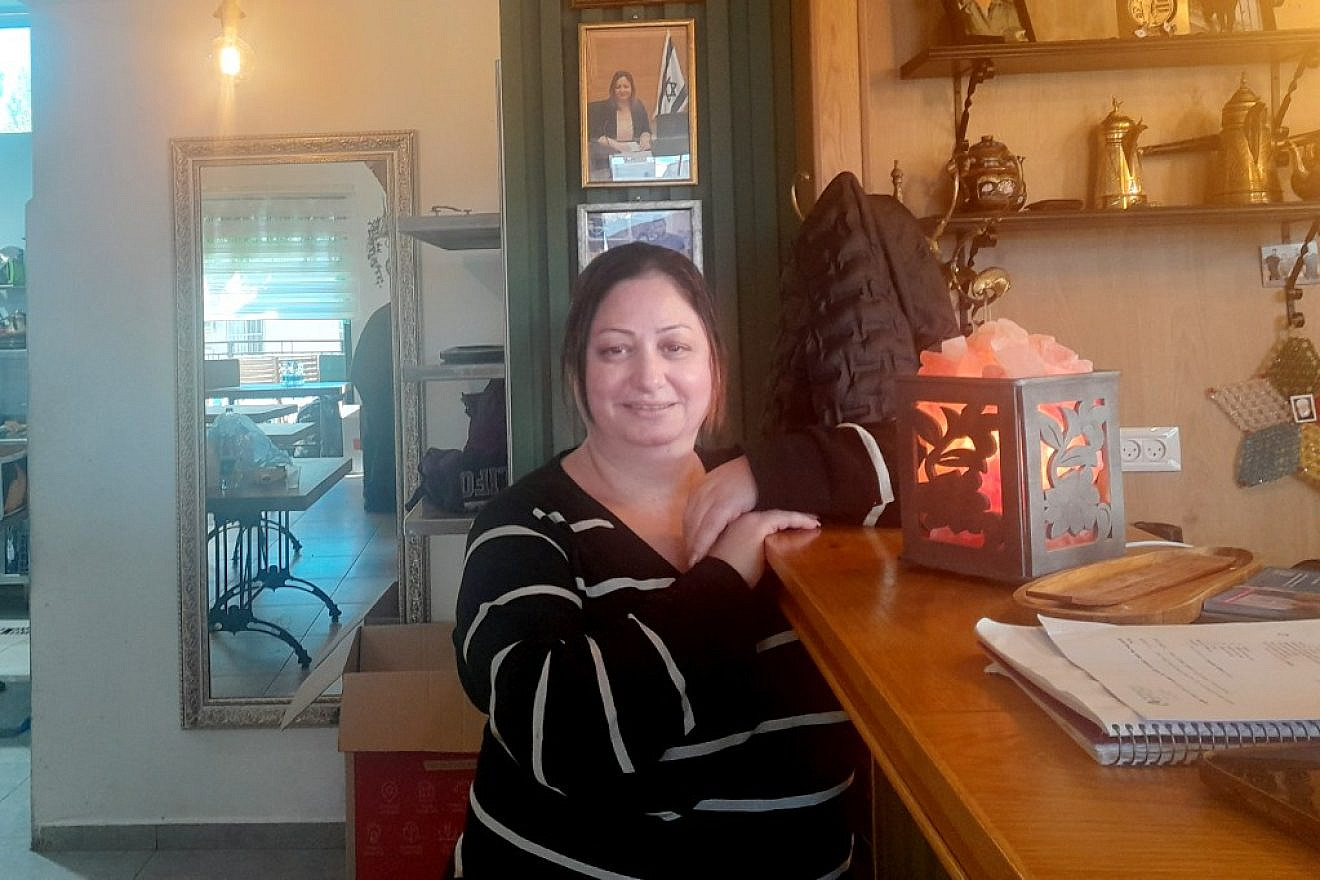The aroma of spices and the rattling of pans filled the kitchen of the Noor restaurant. The restaurant was made kosher in an act of solidarity with soldiers passing through the Galilee Druze village of Julis.
“I want to feed all the Israeli soldiers! They all are like my children, doesn’t matter, Druze or Jewish,” said Basma Hino, the restaurant’s owner.
Basma explained that when the war started, the restaurant saw a drop-off in customers and a lot of unused food.
So she and her son, Noor, used the leftovers to create free meals for soldiers. This was particularly moving for the 21-year-old Noor, who recently completed his mandatory military service and even fed soldiers who served in his late father’s brigade.
“It was a very meaningful experience for us to cook and drive the food to the soldiers together, by ourselves. They asked for 400-500 portions; I have never cooked in such quantities but it was a great honor for me to do so,” Basma said. “That was when I realized that not all soldiers could eat my food since it was not kosher. So I made up my mind to certify my kitchen as kosher.”
So she reached out to Deputy Transportation Minister Uri Maklev of the United Torah Judaism Party, who helped Basma expedite matters with the Chief Rabbinate. The process of making the restaurant kosher required replacing or intensely cleaning pots and dishes and kitchen equipment under the Rabbinate’s supervision.
That completed, Basma now opens the restaurant to the public three days a week and reserves one day exclusively to prepare meals for soldiers. This dedicated day sees her cooking and distributing hundreds of meals to soldiers stationed in the northern outposts.
Occasionally, she collaborates with the Jewish National Fund, welcoming groups of Jewish volunteers from the U.S. who lend a hand with food preparation and packaging.
Daniel Maller, one American volunteer, said, “This war is a very personal matter for the American Jews, the security of this country matters to all of us. And that’s why what Basma has been doing here for the soldiers is incredible.”
Maller, an attorney from Arlington, Virginia, came to Israel to volunteer for a week, and for one day, the JNF brought him to Julis.
A covenant of life
Basma’s efforts have not gone unnoticed. On that same day, Yitzhak Wasserlauf, the minister for the development of the Negev and the Galilee, paid a surprise visit to express his appreciation.
“With the Druze, we have a covenant of life and also a covenant of blood, as we fight shoulder to shoulder,” Wasserlauf told the crowd of volunteers. “Basma is an example of the wonderful people in our nation, a source of inspiration and pride. It’s very exciting to behold.”
His remarks left Basma wiping tears from her eyes.
“As a Druze it is very important for me to strengthen the relationship between the Druze and the Jews,” she explained. “We all live here together; we fight the war together and here at my restaurant we cook shoulder to shoulder for our hero soldiers. We love our country and it’s an amazing feeling to hear the Jewish government officials expressing so much love for our community.”
Pausing to wipe away another tear, she added, “For us it is paramount to continue working and prepare food for the soldiers.”
Around 145,000 Druze live in Israel.
Druze serve in senior positions in public and military life, and the bond between Jewish and Druze soldiers is referred to as the “covenant of blood.”
Druze speak Arabic but are not Muslim and very secretive about their religious beliefs. The Druze communities of Israel, Lebanon and Syria regard themselves as descendants of the biblical Jethro, the father-in-law of Moses.


























